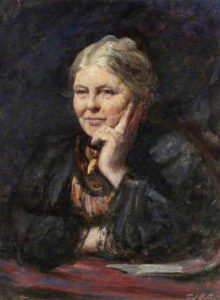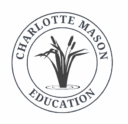Bringing Charlotte Mason’s Living Philosophy to Today’s Families
Charlotte Mason Education exists to guide families seeking a living, classical education — one rooted in truth, beauty, and the dignity of the child. We offer a clear, thoughtful pathway into the Charlotte Mason method for those who believe education should nourish the whole person, not just check off standards.
“Our crying need to-day is less for a better method of education than for an adequate conception of children,––children, merely as human beings.”
New to Charlotte Mason?
A growing number of parents and educators are seeking a fresh approach to education—one that nurtures a child’s natural curiosity, fosters a love for learning, and respects them as whole persons. Charlotte Mason, a 19th-century educator, championed this vision, and today, her time-tested methods are being rediscovered in homeschools, co-ops, private schools, public schools, and beyond. Her philosophy is simple yet profound: give children living ideas, rich literature, time in nature, and the habits of a well-ordered life.
Discover how her simple yet powerful approach can bring learning to life.
Who Was Charlotte Mason?

Frederic Yates (1854–1919)
Charlotte Mason (1842–1923) was a British educator and reformer whose philosophy transformed education by recognizing children as whole persons, eager to learn and grow. She championed a broad, life-enriching curriculum — rich with living books, nature study, and the fine arts — opposing rote memorization in favor of meaningful learning. Through the Parents’ National Educational Union (PNEU) and her writings, Mason laid the foundation for a method that continues to inspire educators and parents today.
Read her full biography ⇒
Explore the Charlotte Mason Approach

Create Your CM Homeschool Plan
Step-by-step guidance for choosing books, structuring your days, and building essential habits.

Essential Resources for Your Journey
Free tools, curriculum recommendations, and practical support for living out the Charlotte Mason method.

Finding Community in a CM Education
Connect with like-minded families, start a group, and find support for your educational journey.

Philosophy in Action: Living the CM Way
See real-world examples of how Charlotte Mason’s timeless principles breathe life into children's learning.
Testimonials
Education is more than the acquisition of knowledge. Families and educators who have embraced the Charlotte Mason method often describe it as transformative, bringing depth and joy to their homes and classrooms.
The testimonials at the link below come from families using AmblesideOnline, a well-established curriculum rooted in Charlotte Mason’s philosophy of education. Their stories reflect the real challenges and lasting triumphs of this approach. We invite you to explore these firsthand accounts and see how a Charlotte Mason education can shape not just a child’s learning, but an entire way of life.
Real-Life Success Stories ⇒
Further Reading
Living books form the heart of a Charlotte Mason education. Learn what they are, how they differ from traditional textbooks, and get practical guidance on selecting high-quality books that inspire curiosity and deep learning.




